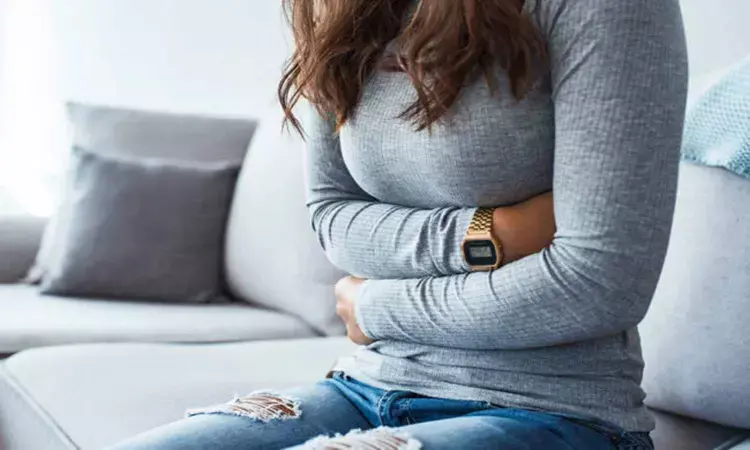- Home
- Medical news & Guidelines
- Anesthesiology
- Cardiology and CTVS
- Critical Care
- Dentistry
- Dermatology
- Diabetes and Endocrinology
- ENT
- Gastroenterology
- Medicine
- Nephrology
- Neurology
- Obstretics-Gynaecology
- Oncology
- Ophthalmology
- Orthopaedics
- Pediatrics-Neonatology
- Psychiatry
- Pulmonology
- Radiology
- Surgery
- Urology
- Laboratory Medicine
- Diet
- Nursing
- Paramedical
- Physiotherapy
- Health news
- Fact Check
- Bone Health Fact Check
- Brain Health Fact Check
- Cancer Related Fact Check
- Child Care Fact Check
- Dental and oral health fact check
- Diabetes and metabolic health fact check
- Diet and Nutrition Fact Check
- Eye and ENT Care Fact Check
- Fitness fact check
- Gut health fact check
- Heart health fact check
- Kidney health fact check
- Medical education fact check
- Men's health fact check
- Respiratory fact check
- Skin and hair care fact check
- Vaccine and Immunization fact check
- Women's health fact check
- AYUSH
- State News
- Andaman and Nicobar Islands
- Andhra Pradesh
- Arunachal Pradesh
- Assam
- Bihar
- Chandigarh
- Chattisgarh
- Dadra and Nagar Haveli
- Daman and Diu
- Delhi
- Goa
- Gujarat
- Haryana
- Himachal Pradesh
- Jammu & Kashmir
- Jharkhand
- Karnataka
- Kerala
- Ladakh
- Lakshadweep
- Madhya Pradesh
- Maharashtra
- Manipur
- Meghalaya
- Mizoram
- Nagaland
- Odisha
- Puducherry
- Punjab
- Rajasthan
- Sikkim
- Tamil Nadu
- Telangana
- Tripura
- Uttar Pradesh
- Uttrakhand
- West Bengal
- Medical Education
- Industry
Antacid alone has better analgesic effect compared to a combination with lidocaine

DES PLAINES, IL -Epigastric pain and dyspepsia in EDs around the world are typically treated with an antacid, either alone or combined with other medications. Such medications include viscous lidocaine, an antihistamine, a proton pump inhibitor, or an anticholinergic.
Researchers have found in a new study that antacid monotherapy is more effective in relieving epigastric pain than in combination with lidocaine. The study is to be published in the September 2020 issue of Academic Emergency Medicine (AEM), a journal of the Society for Academic Emergency Medicine (SAEM).
The lead author of the single-center study is Dr. Jaimee Warren, a first-year physician at the Royal Melbourne Hospital, Parkville, Victoria, Australia. The findings of the study are discussed with the author in a recent AEM podcast, We Didn't Start the Fire But Can Antacid Monotherapy Stop the Fire?
The double-blind, randomized clinical trial compared three different solutions for the treatment of adults with epigastric pain or dyspepsia presenting to the emergency department (ED): antacid monotherapy, antacid/lidocaine 2% solution, and antacid/lidocaine 2% viscous gel.
Warren, et al. concluded that all three treatments worked and there was no statistical difference in pain relief among the groups at 30 and 60 minutes; however, antacid monotherapy was found to be the most palatable solution, with statistically significant differences in taste, bitterness, and overall acceptability, and there were fewer side effects. In conclusion, the study authors recommend using antiacid monotherapy in place of lidocaine/antacid combination therapy for management of dyspepsia and epigastric pain for patients in the ED.
Commenting on the study is Robert Ehrman, MD, MS, research faculty in the department of emergency medicine at Wayne State School of Medicine in Detroit, MI:
"This study nicely demonstrates that 'more' is not always synonymous with 'better' when it comes to treating pain. Antacid alone appears to be equally efficacious to antacid-lidocaine combinations, without any of the unpleasant side effects that may discourage its use. This is important information to provide to patients as antacids are available over-the-counter, thereby allowing patients to manage their symptoms without a visit to the emergency department."
Hina Zahid Joined Medical Dialogue in 2017 with a passion to work as a Reporter. She coordinates with various national and international journals and association and covers all the stories related to Medical guidelines, Medical Journals, rare medical surgeries as well as all the updates in the medical field. Email: editorial@medicaldialogues.in. Contact no. 011-43720751
Dr Kamal Kant Kohli-MBBS, DTCD- a chest specialist with more than 30 years of practice and a flair for writing clinical articles, Dr Kamal Kant Kohli joined Medical Dialogues as a Chief Editor of Medical News. Besides writing articles, as an editor, he proofreads and verifies all the medical content published on Medical Dialogues including those coming from journals, studies,medical conferences,guidelines etc. Email: drkohli@medicaldialogues.in. Contact no. 011-43720751


